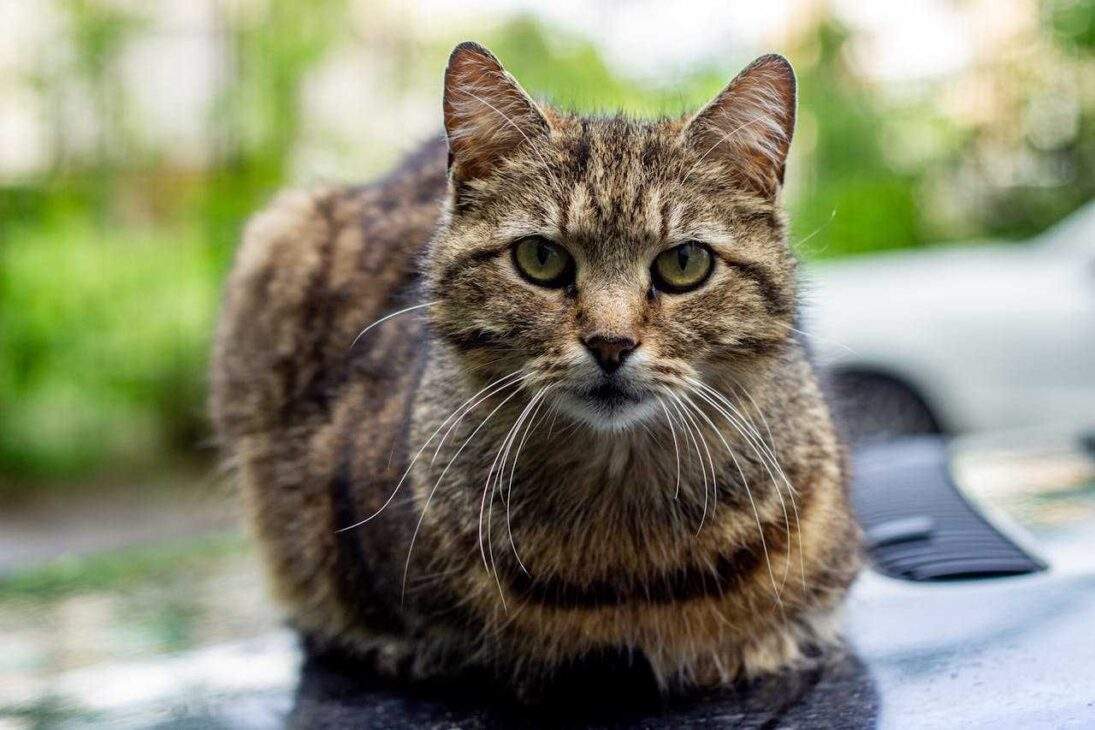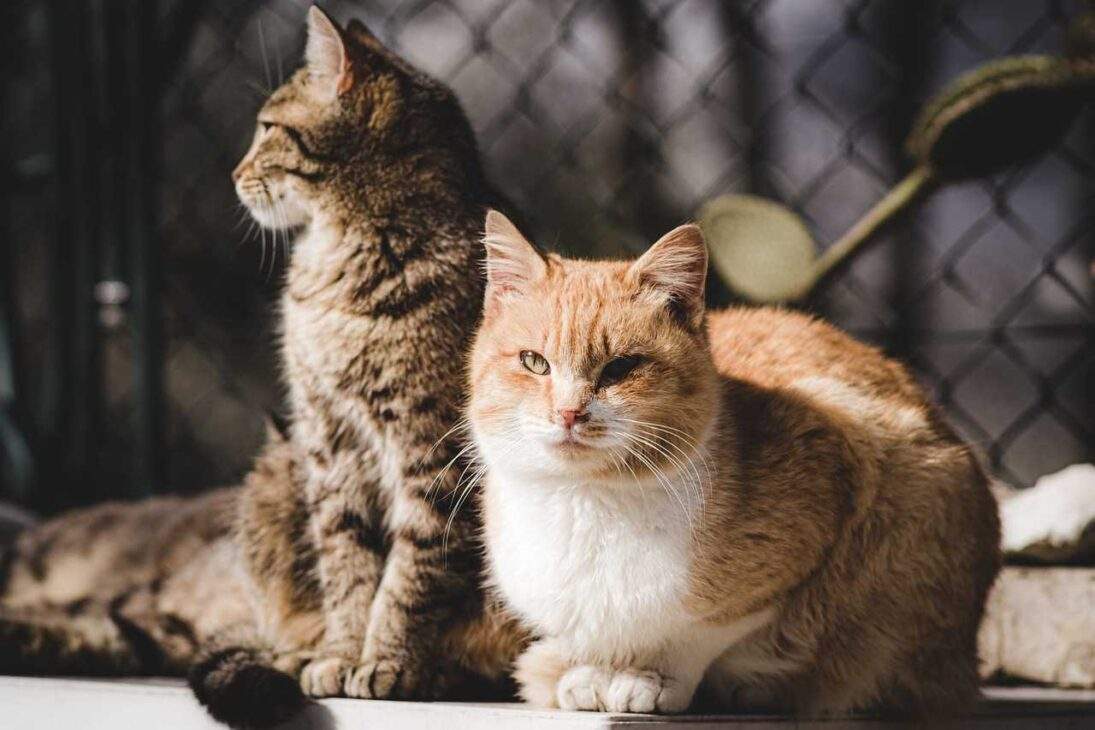Cat Skin Problems: Ditch the Chemicals! 7 Effective Natural Solutions for Relief

Cats, known for their impeccable grooming habits, can still experience a range of skin issues. From itching and allergies to infections and parasites, cat skin problems can be distressing for both felines and their owners. This comprehensive guide will delve into the various types of cat skin problems, their causes, symptoms, and effective treatments, helping you keep your feline friend comfortable and healthy.
Does your feline friend seem less purrfectly content lately? Scratching excessively, sporting mysterious bald patches, or just not looking their usual sleek and shiny self? Cat skin problems can be a frustrating experience for both you and your furry companion. Itchy, irritated skin can make playtime a struggle and cuddle sessions uncomfortable.
But fear not, cat lovers! Here, we’ll delve into the world of feline dermatology, shedding light on the most common cat skin problems. We’ll explore the telltale signs to watch out for, delve into the potential causes, and even share some helpful tips for keeping your cat’s coat healthy and irritation-free.
Whether you’re facing a recent outbreak of itchy bumps or simply want to be proactive about your cat’s well-being, this guide is here to empower you with knowledge. So, grab a comfy spot on the couch with your purring companion by your side, and let’s embark on this journey together!
Common Cat Skin Problems
Itchy Cat
Itching is a common symptom of many cat skin problems. Persistent scratching can lead to open sores and secondary infections. Itchiness in cats can be caused by allergies, parasites, infections, or underlying health issues. Identifying the root cause is essential for effective treatment.
Resources:
- PetMD: Itchy Cat
Cat Allergies
Cats can develop allergies to various substances, including food, pollen, dust, and flea saliva. Allergic reactions often manifest as skin problems, including itching, redness, and inflammation. An allergy test can help pinpoint the allergen and guide treatment.
Resources:
- ASPCA: Cat Allergies
Cat Dry Skin
Dry skin in cats can be caused by environmental factors, nutritional deficiencies, or underlying health conditions. Symptoms include flaking, dandruff, and itching. Hydrating your cat’s skin through diet and topical treatments can provide relief.
Resources:
- PetMD: Dry Skin in Cats
Cat Hair Loss
Hair loss in cats, also known as alopecia, can be partial or complete. It can result from various issues, including allergies, parasites, fungal infections, or stress. Determining the cause is crucial for effective treatment.
Resources:
Cat Flaky Skin
Flaky skin, or dandruff, in cats can indicate dry skin or an underlying condition such as seborrhea or an endocrine disorder. Regular grooming and a balanced diet can help manage this issue.
Resources:
- Vetstreet: Flaky Skin in Cats
Cat Scabs
Scabs on a cat’s skin often result from scratching or biting at itchy areas. Common causes include fleas, allergies, or infections. Treatment involves addressing the underlying cause and providing topical relief.
Resources:
- The Spruce Pets: Cat Scabs
Cat Dandruff
Dandruff in cats appears as white flakes on the skin and fur. It can be caused by dry skin, poor nutrition, or medical conditions such as diabetes. Regular brushing and dietary supplements can help reduce dandruff.
Resources:
- Hill’s Pet: Cat Dandruff
Cat Hot Spots
Hot spots are localized areas of inflamed, infected skin. They can be very painful and are often caused by scratching, biting, or licking. Immediate veterinary attention is required to treat and prevent further complications.
Resources:
Ringworm in Cats
Ringworm is a fungal infection that affects the skin, hair, and nails. It is highly contagious and appears as circular, scaly patches. Treatment involves antifungal medications and thorough cleaning to prevent spread.
Resources:
- CDC: Ringworm and Pets
Feline Acne
Feline acne typically occurs on the chin and lips, presenting as blackheads and pimples. It can be caused by stress, poor grooming, or plastic food bowls. Treatment includes improved hygiene and topical medications.
Resources:
Cat Yeast Infection
Yeast infections in cats are often seen in the ears and skin folds. They cause itching, redness, and a distinct odor. Treatment involves antifungal medications and maintaining proper hygiene.
Resources:

Symptoms and Diagnosis
Cat Skin Irritation
Skin irritation in cats can be caused by a variety of factors, including allergies, parasites, and infections. Symptoms include redness, swelling, and itching. A thorough veterinary examination is necessary to diagnose the cause.
Resources:
- PetMD: Skin Irritation in Cats
Cat Scratching
Excessive scratching can lead to open sores and infections. Common causes include fleas, allergies, and skin infections. Identifying and treating the underlying cause is crucial to stop the scratching.
Resources:
- ASPCA: Cat Scratching
Cat Licking Excessively
Cats that lick themselves excessively may be trying to soothe itchy or irritated skin. This behavior can lead to hair loss and skin damage. The underlying cause must be identified and treated.
Resources:
- PetMD: Excessive Licking in Cats
Bald Spots on Cats
Bald spots can indicate a variety of issues, including fungal infections, parasites, or hormonal imbalances. A veterinary diagnosis is necessary to determine the exact cause and appropriate treatment.
Resources:
Crusty Skin on Cats
Crusty skin may result from infections, parasites, or allergies. It often requires veterinary attention to identify the cause and provide effective treatment.
Resources:
- Vetinfo: Crusty Skin in Cats
Red Bumps on Cat Skin
Red bumps can be a sign of allergies, insect bites, or infections. A veterinary examination can help determine the cause and appropriate treatment.
Resources:
- PetMD: Red Bumps on Cat Skin
Sensitive Cat Skin
Some cats have more sensitive skin than others, making them prone to irritation and allergies. Identifying triggers and providing a hypoallergenic diet can help manage this condition.
Resources:

Treatment Options
Hypoallergenic Cat Food
Switching to hypoallergenic cat food can help manage food allergies and improve skin health. These diets are formulated to minimize allergens and promote healthy skin and coat.
Resources:
- Chewy: Hypoallergenic Cat Food
Cat Skin Allergies Treatment
Treatments for cat skin allergies include antihistamines, corticosteroids, and topical ointments. Identifying and eliminating the allergen is also crucial.
Resources:
- PetMD: Treating Cat Allergies
Medicated Cat Shampoo
Medicated shampoos can help treat various skin conditions, including fungal infections, allergies, and seborrhea. Regular bathing with these shampoos can provide relief and promote healing.
Resources:
- Petco: Medicated Cat Shampoo
Cat Stress and Skin Problems
Stress can exacerbate skin problems in cats. Providing a calm environment, interactive toys, and calming aids can help reduce stress-related skin issues.
Fleas and Cat Skin Problems
Fleas are a common cause of skin problems in cats, leading to itching, irritation, and allergic reactions. Flea prevention and treatment are essential for managing these issues.
Resources:
- PetMD: Flea Control for Cats
Food Allergies in Cats
Food allergies can cause a range of symptoms, including skin problems. An elimination diet can help identify the allergen, and a hypoallergenic diet can prevent future reactions.
Resources:
- Vetinfo: Food Allergies in Cats
Cat Skin Infection Treatment
Treating skin infections involves antibiotics, antifungal medications, and topical treatments. Prompt treatment is necessary to prevent the infection from spreading.
Resources:

Prevention and Maintenance
Preventing Cat Skin Problems
Regular grooming, a balanced diet, and prompt treatment of health issues can help prevent skin problems in cats. Regular veterinary check-ups are also essential.
Resources:
- PetMD: Preventing Cat Skin Problems
Best Cat Brush for Shedding
Using the right brush can help reduce shedding and prevent hairballs. Regular brushing removes loose hair and distributes natural oils, promoting a healthy coat.
Resources:
- Chewy: Best Cat Brushes
Oatmeal Bath for Cats
Oatmeal baths can soothe itchy and irritated skin. They are especially beneficial for cats with allergies or dry skin. Use a cat-safe oatmeal shampoo for best results.
Resources:
- PetMD: Oatmeal Baths for Cats
Calming Aids for Cats
Calming aids, such as pheromone diffusers and anxiety wraps, can help reduce stress and prevent stress-related skin problems. These products can create a more relaxing environment for your cat.
Resources:
- Chewy: Calming Aids for Cats

7 Natural Solutions for Cat Skin Problems
Cat skin problems can be distressing for both pets and their owners. While veterinary treatment is often necessary, there are several natural solutions that can provide relief and support the healing process. Here are seven effective natural remedies to help alleviate cat skin problems.
Omega-3 Fatty Acids
Benefits:
- Anti-inflammatory Properties: Omega-3 fatty acids help reduce inflammation and improve skin health.
- Skin Hydration: They help maintain the skin’s natural moisture barrier, preventing dryness and flakiness.
- Healthy Coat: Promotes a shiny and healthy coat.
Adding omega-3 fatty acids to your cat’s diet can help alleviate dry skin, dandruff, and inflammation. Fish oil supplements are a popular source of omega-3s and can be added to your cat’s food.
Resources:
- PetMD: Omega-3 Fatty Acids for Cats
Coconut Oil
Benefits:
- Moisturizes Skin: Coconut oil can help hydrate and soothe dry, irritated skin.
- Antibacterial and Antifungal: It has natural antibacterial and antifungal properties that can help prevent infections.
- Promotes Healing: Assists in the healing of minor cuts and abrasions.
Applying a small amount of coconut oil to your cat’s skin can help with dryness and irritation. Ensure you use virgin, cold-pressed coconut oil for the best results.
Resources:
- PetMD: Benefits of Coconut Oil for Cats
Oatmeal Baths
Benefits:
- Soothes Itchy Skin: Oatmeal has anti-inflammatory properties that can soothe itching and irritation.
- Cleanses Skin: Helps remove allergens and dirt from the skin.
- Hydrates: Oatmeal can help moisturize and protect the skin.
An oatmeal bath can provide immediate relief for cats with itchy or irritated skin. Use a colloidal oatmeal product or grind plain oats into a fine powder and mix with warm water for a soothing soak.
Resources:
- PetMD: Oatmeal Baths for Cats
Aloe Vera
Benefits:
- Anti-inflammatory: Aloe vera helps reduce inflammation and soothes irritated skin.
- Hydrating: It provides moisture to dry, flaky skin.
- Healing Properties: Promotes the healing of minor cuts and abrasions.
Aloe vera gel can be applied topically to soothe irritated skin and promote healing. Ensure the aloe vera product is free from added chemicals and preservatives, as these can irritate your cat’s skin.
Resources:
- ASPCA: Aloe Vera Use in Pets
Apple Cider Vinegar
Benefits:
- Antibacterial and Antifungal: Apple cider vinegar can help treat bacterial and fungal infections.
- Itch Relief: Provides relief from itching caused by allergies or infections.
- Skin Toner: Balances the skin’s pH and promotes a healthy coat.
Diluted apple cider vinegar can be used as a topical treatment to relieve itching and treat minor skin infections. Mix one part vinegar with one part water and apply it to the affected area using a cotton ball.
Resources:
- PetMD: Apple Cider Vinegar for Cats
Chamomile Tea
Benefits:
- Anti-inflammatory: Chamomile has natural anti-inflammatory properties that can soothe irritated skin.
- Antimicrobial: Helps fight against bacterial and fungal infections.
- Calming Effect: Provides a calming effect that can reduce stress-related skin issues.
Chamomile tea can be used as a topical rinse to soothe irritated skin and reduce inflammation. Brew a cup of chamomile tea, let it cool, and apply it to the affected areas using a clean cloth.
Resources:
- PetCareRx: Benefits of Chamomile for Cats
Epsom Salt Soaks
Benefits:
- Reduces Inflammation: Epsom salt has anti-inflammatory properties that can reduce swelling and discomfort.
- Soothes Skin: Provides relief for itchy, irritated skin.
- Detoxifies: Helps draw out toxins and impurities from the skin.
An Epsom salt soak can help relieve inflammation and itching. Dissolve Epsom salt in warm water and soak a clean cloth in the solution. Apply the cloth to the affected area for a soothing effect.
Resources:
- PetMD: Epsom Salt for Pets

Natural Remedies Cat Skin Problems
Natural remedies can provide effective relief for various cat skin problems. However, it’s essential to consult with your veterinarian before starting any new treatment to ensure it’s safe and appropriate for your cat’s specific condition. Regular grooming, a balanced diet, and prompt attention to any skin issues can help keep your feline friend’s skin healthy and free from problems.
Additional Resources
- Catster: Natural Remedies for Cats
- The Humane Society: Cat Care Tips
- Animal Planet: Cat Health Issues
By understanding and addressing cat skin problems promptly with natural solutions, you can enhance your cat’s quality of life and ensure they remain comfortable and healthy.
Cat Skin Problems
Cat skin problems can be a source of discomfort and distress for your feline companion. By understanding the common causes, symptoms, and treatments, you can effectively manage and prevent these issues, ensuring your cat remains healthy and comfortable. Regular veterinary care, a balanced diet, and proper grooming are essential components of maintaining your cat’s skin health.
Phew! We’ve covered a lot of ground when it comes to cat skin problems. Remember, a healthy coat is a happy coat! By familiarizing yourself with the signs of irritation, understanding potential causes, and implementing preventative measures like a healthy diet and regular grooming, you can significantly improve your cat’s comfort and well-being.
Of course, every cat is an individual, and if you have any concerns about your feline friend’s skin or suspect a more serious issue, always consult your veterinarian. They can provide a personalized diagnosis and treatment plan specific to your cat’s needs.
So, armed with this knowledge, go forth and shower your cat with love, healthy meals, and gentle grooming sessions. Together, you can create a happy and itch-free life for your precious purring companion!
Additional Resources
- Catster: Common Cat Skin Problems
- Animal Planet: Cat Health Issues
- The Humane Society: Cat Care Tips
Understanding and addressing cat skin problems promptly can make a significant difference in your cat’s quality of life. Stay vigilant and proactive in your cat’s healthcare, and consult your veterinarian for any concerns or persistent issues.
Frequently Asked Questions: Cat Skin Problems
1. My cat is scratching excessively. What could be causing it?
There are many potential causes for excessive scratching in cats, including fleas, allergies (food or environmental), dry skin, parasites like mites, or even stress.
2. How can I tell if my cat has allergies?
Common signs of cat allergies include itchy skin, hair loss, red, inflamed paws, and recurrent ear infections. Consult your veterinarian for proper diagnosis and allergy testing.
3. What does dry skin look like on cats?
Dry skin in cats can manifest as flaking, dandruff, and a dull, brittle coat. Scratching can worsen the condition, leading to scabs and crusty patches.
4. Should I use a medicated shampoo for my cat’s skin problems?
Medicated shampoos can be helpful for certain skin conditions, but it’s crucial to consult your veterinarian first to determine the cause of the problem and choose the appropriate shampoo.
5. Can food allergies cause skin problems in cats?
Absolutely! Food allergies can manifest as itchy skin, hair loss, and even vomiting or diarrhea. Your veterinarian might recommend a hypoallergenic diet for diagnosis and management.
6. How can I tell the difference between fleas and other skin irritants?
Fleas often leave behind small black specks (flea dirt) in your cat’s fur. You might also notice tiny red bumps where the fleas have bitten. Consulting your veterinarian for a definitive diagnosis is recommended.
7. Does stress cause skin problems in cats?
Yes, stress can worsen existing skin conditions or even trigger them in some cats. Identifying and addressing the source of stress can be crucial for managing your cat’s overall well-being.
8. What kind of brush is best for cats with skin problems?
Gentle brushes with soft bristles are ideal for cats with sensitive skin. Regular brushing helps remove dead skin cells and allergens, promoting a healthy coat.
9. Can an oatmeal bath help my cat’s itchy skin?
Oatmeal baths can be soothing for cats with dry, itchy skin. However, consult your veterinarian for proper instructions on oatmeal bath preparation and frequency.
10. How can I prevent cat skin problems?
Regular grooming, a healthy diet, parasite control, and stress reduction are all key components of preventing skin problems in cats.
11. Should I bathe my cat regularly?
Most cats are excellent self-groomers and typically don’t require regular baths. However, if your cat has specific skin conditions, your veterinarian might recommend medicated baths.
12. When should I see a veterinarian about my cat’s skin problems?
If your cat’s scratching is excessive, they have persistent hair loss, develop scabs or open sores, or seem uncomfortable, it’s crucial to schedule a veterinary visit for proper diagnosis and treatment.








